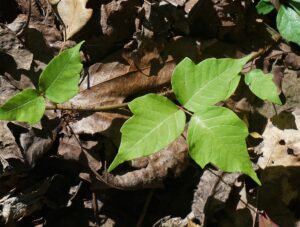It’s summer here in Tucker County and the staff at St. George Medical Clinic is so excited for all things summer adventure before the hustle and bustle of autumn is upon us. But, before you hit the river, we’ve rounded up some of the staff’s best summer safety tips that will keep your family happy and healthy for the rest of the summer days.
Safety Tips for the River-holic

West Virginia has some of the best rivers, lakes, and streams that are great for swimming, fishing, kayaking, and boating. When on the water remember these safety tips.
- Never leave a child unattended near water.
- Have children—or anyone who cannot swim—wear a U.S. Coast Guard-approved life jacket.
- Never swim alone.
- Know the signs of drowning and rescue them if necessary.
- Have your cell phone nearby and call 911 in case of an emergency.
Feel the Burn
We’ve all been there, fire engine red after a long day in the sun. It’s painful and dangerous. Do your due diligence to avoid being sunburnt at all costs. Remember to limit sun exposure, especially when it’s at the strongest, apply sunscreen with SPF 30+ often, and seek shade when possible. Be mindful of infants, children, and senior citizens as they have more sensitive skin than adults.
If you do get sunburnt, here are a few insider tips we recommend to alleviate pain:
- Take cool baths and showers.
- Drink lots of water and stay hydrated.
- Do not pop blisters.
- Use refrigerated aloe gel to soothe burns.
- Take over-the-counter pain relievers if necessary.
Recognizing Poison
Poisonous Snakes
Although West Virginia is home to only two types of poisonous snakes, you should be aware of what they look like and where they live.
The timber rattlesnake and the northern copperhead are both native, venomous snakes that make their homes in Almost Heaven. The timber rattlesnake prefers to inhibit wooded hills and mountains, but can sometimes be found in flatter valleys. The northern copperhead favors forested hillsides and valleys around streams.
Here are a few things to remember when in snake territory:
- If you see a snake, do not attempt to handle it. Rattlesnakes and copperheads can strike when threatened so give them space.
- Be observant and stay on the trail or path.
- Do not kill them. Snakes play a critical role in our ecosystem.
Although, it is very unlikely for you to be bitten by a poisonous snake if you stay away and do not touch them, if you do get bitten call 911 and immediately seek medical attention.
Poisonous Plants
Snakes aren’t the only poisonous thing looming in the West Virginia mountains. Poisonous plants can oftentimes be overlooked and can cause serious injury.

Poison ivy, poison oak, and poison sumac are all commonly found in West Virginia and can sometimes be found in your own backyard. Wash your skin right away after coming into contact.
Symptoms can include redness, swelling, itchiness, blisters, and in worst case scenarios, difficulty breathing if you’ve inhaled smoke from burning plants. Most symptoms can be treated at home, but if you have difficulty breathing, a fever, or a rash that will not go away seek medical attention.
The St. George Medical Clinic staff wishes you a fun-filled summer. Remember the risks and protect your family. If you are concerned, please reach out to schedule an appointment or consult with our medical professionals at 304.478.3339.